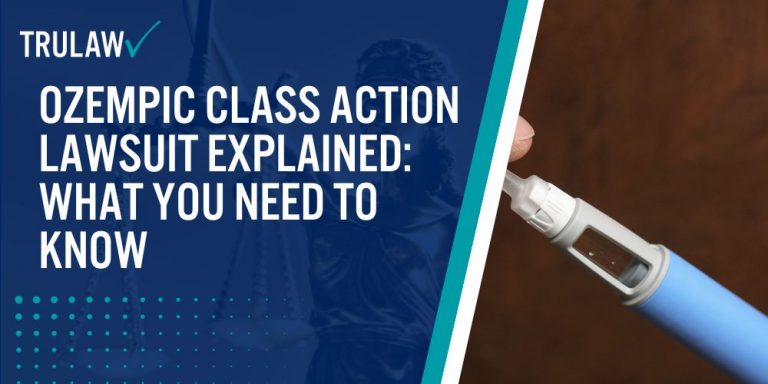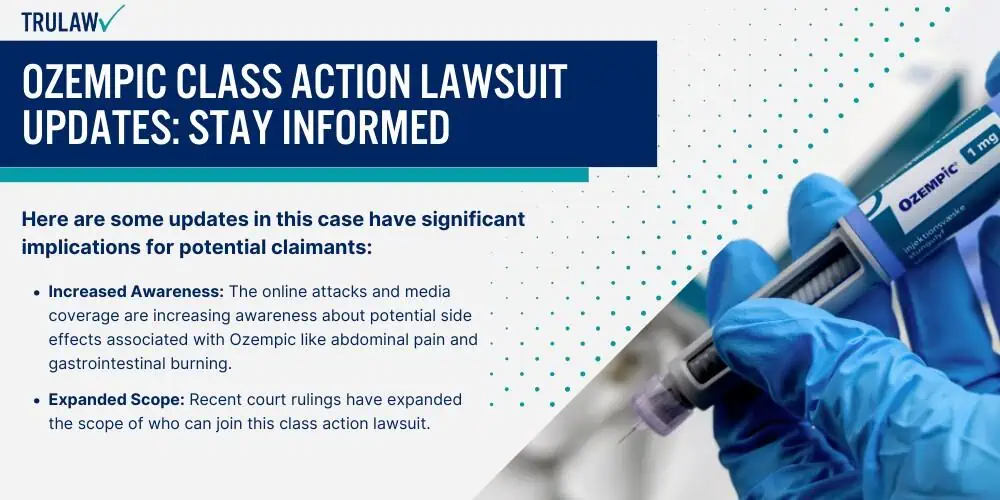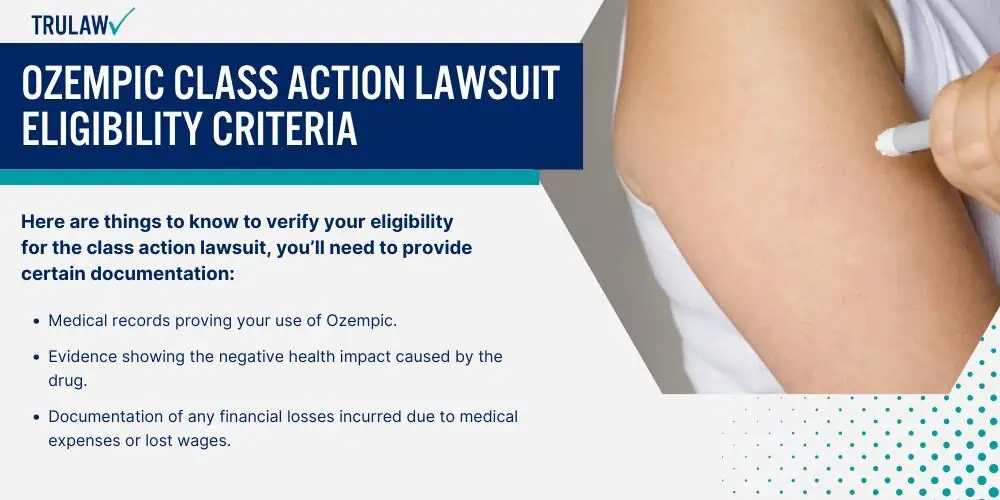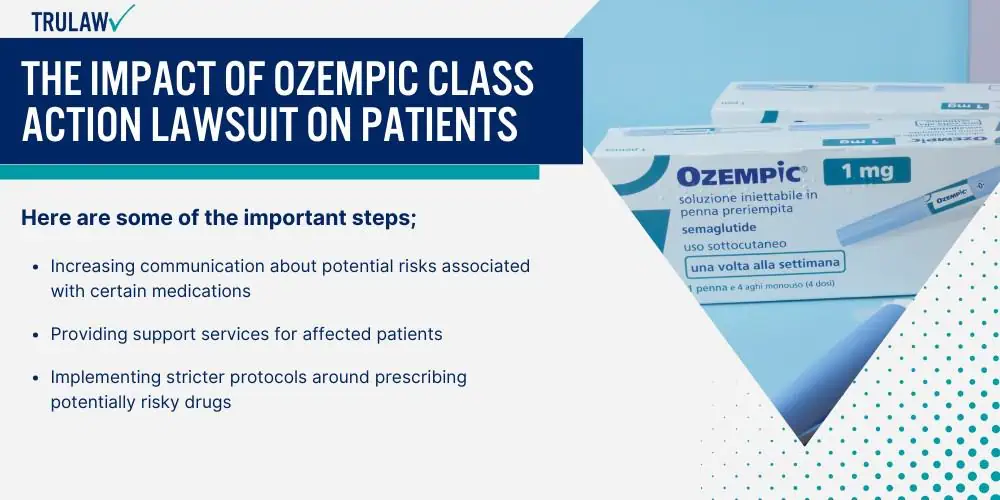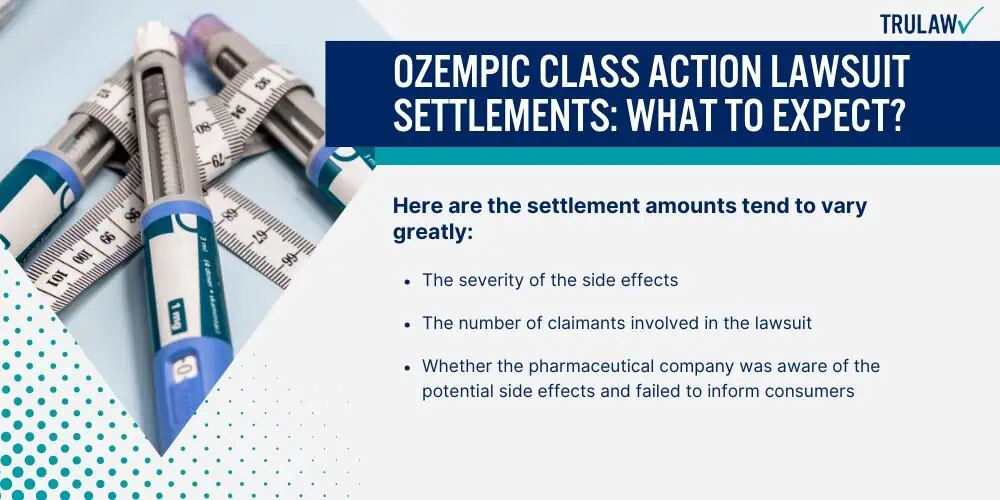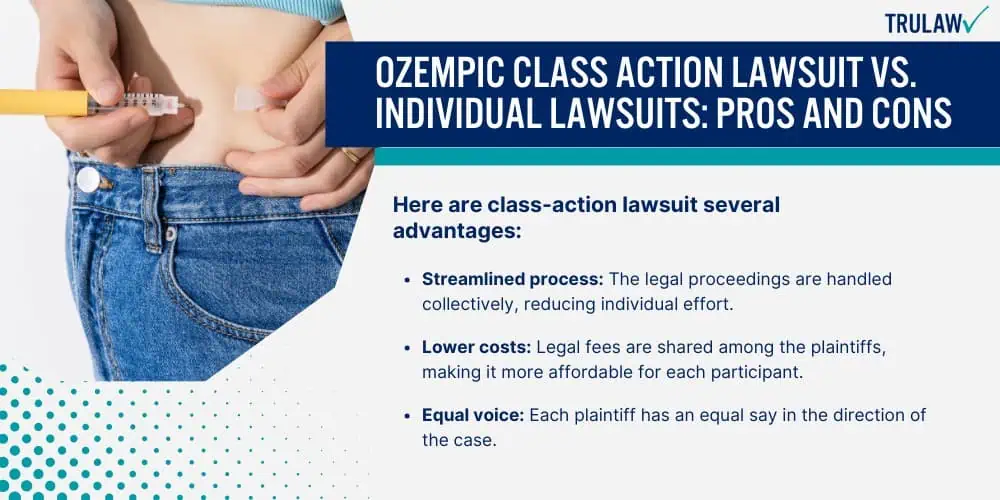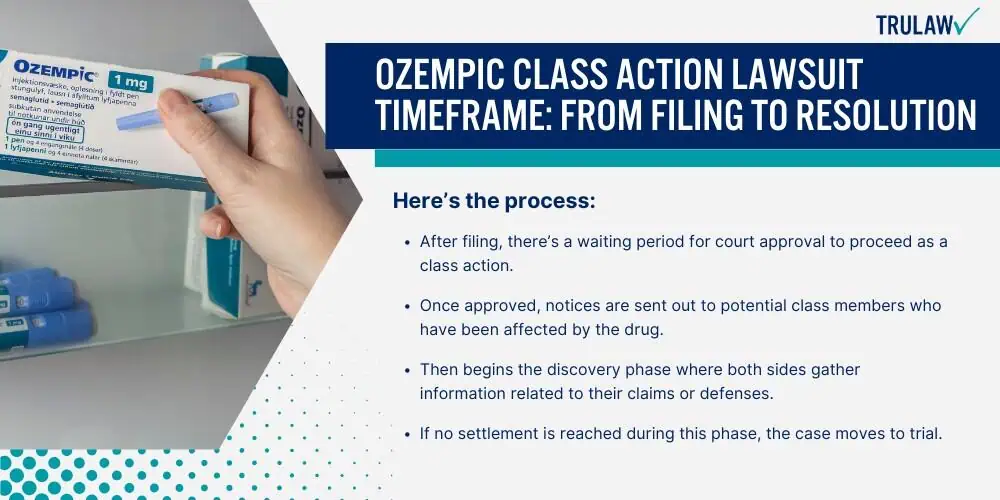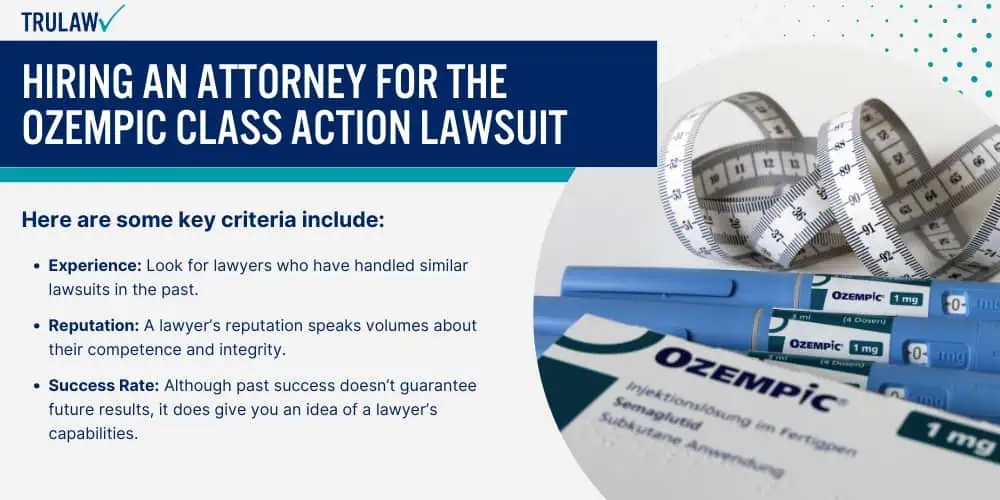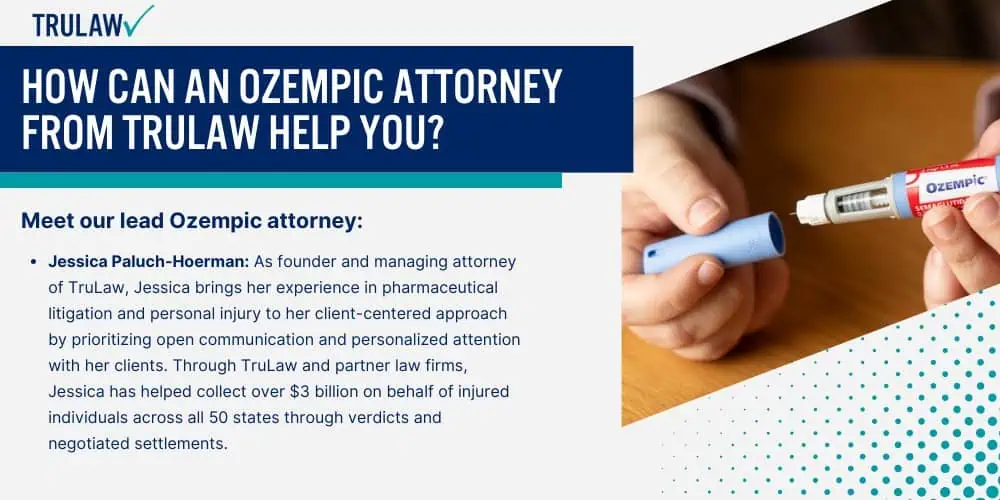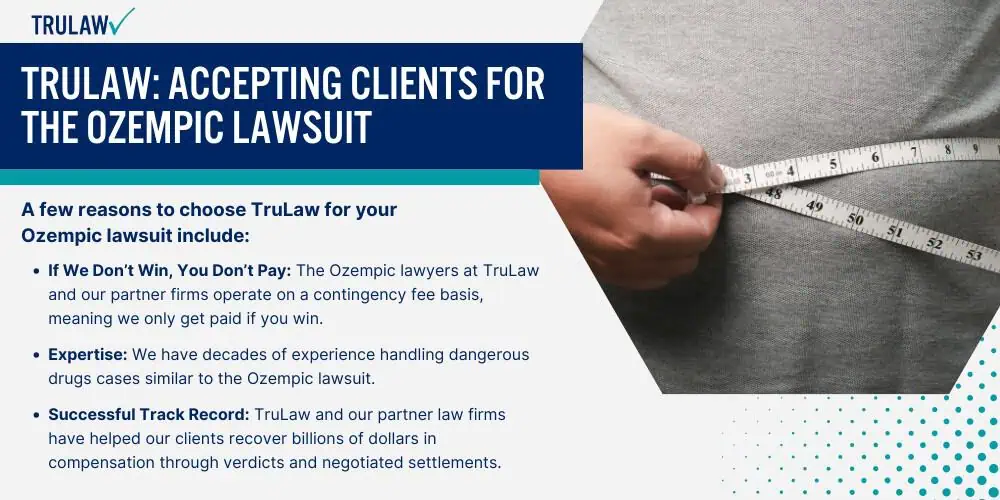A class action lawsuit refers to a legal action taken by a group of individuals who have suffered similar injuries or damages from the same product or service.
In this case, rather than each person filing an individual lawsuit, they come together as a ‘class’ to sue the defendant collectively.
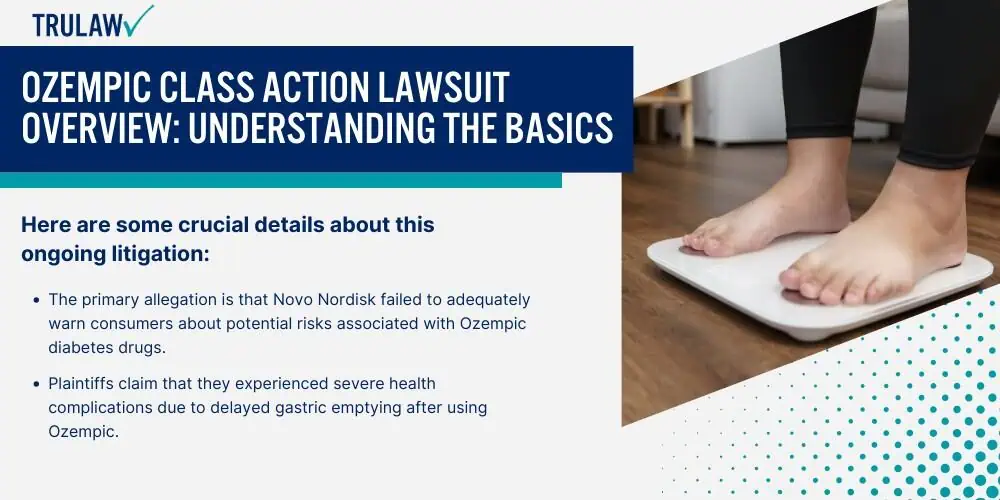
The Difference in This Ozempic Class Action Lawsuit
The Ozempic class action lawsuit differs from other pharmaceutical lawsuits due to its unique nature.
Unlike many cases that revolve around faulty manufacturing or insufficient warnings about side effects, this particular litigation focuses on meta issues related to the drug’s effect on gastric emptying.
Key Facts About The Case
Here are some crucial details about this ongoing litigation:
- The primary allegation is that Novo Nordisk failed to adequately warn consumers about potential risks associated with Ozempic diabetes drugs.
- Plaintiffs claim that they experienced severe health complications due to delayed gastric emptying after using Ozempic.
- As it’s still an active case, outcomes remain uncertain. Like basis for Stomach paralysis, severe vomiting, stomach pain, severe gastrointestinal events, weight loss and some newly identified safety signals.
With these facts at hand, one can better comprehend the basics of this complex issue.
Remember that understanding such intricate legal matters requires careful study and attention to detail.
Legal battles like these often take time to unfold completely.
Therefore, staying updated with ongoing developments can provide valuable insights into how such cases progress and ultimately resolve.
